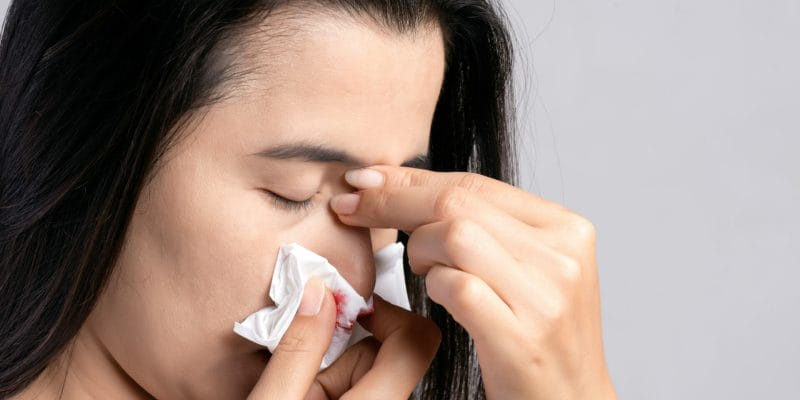Nosebleeds are a common problem and more than 60% of Americans have experienced a nosebleed. Some nosebleeds can be scary and difficult to control. If you’ve ever had a bad nosebleed, you may be wondering why these happen and what you can do stop them.
Why do nosebleeds happen?
A lot of factors are behind the cause of nosebleeds. First, the nose has many blood vessels that are at risk for bleeding. Changes in weather, such as colder temperatures and drier air, make these blood vessels more likely to bleed. Blood thinning medications are another risk factor for nosebleeds. Medical conditions like high blood pressure make nosebleeds more likely to happen.
What can I do if I get a nosebleed?
The best first thing to do for a nosebleed is to apply pressure to the nose. The best way to apply pressure is to squeeze the soft “wings” of the nose together. Pushing on the hard, bony part of the nose is not as effective. Over the counter decongestant spray medicines, such as oxymetazoline or phenylephrine, can be used to help stop a nosebleed that is happening. Leaning the head forward can stop blood from going into the throat and being swallowed.
How do I prevent nosebleeds?
Helping the nose to be better humidified can prevent nosebleeds. One way to do this is to use nasal saline sprays a few times a day. Another way to humidify the nose is to apply a pea-sized dab of saline gel in each nostril in the morning and evening. Avoiding nose picking can also prevent nosebleeds.
When should I see a doctor?
Nosebleeds that do not stop within 30 minutes of applying pressure should be seen by a doctor. In these cases when a nosebleed won’t quit, additional medical treatments such as cautery, nasal packing, and even surgery may be needed. Also if nosebleeds are happening frequently, seeing an otolaryngologist (ENT surgeon) is important to look for other causes.

